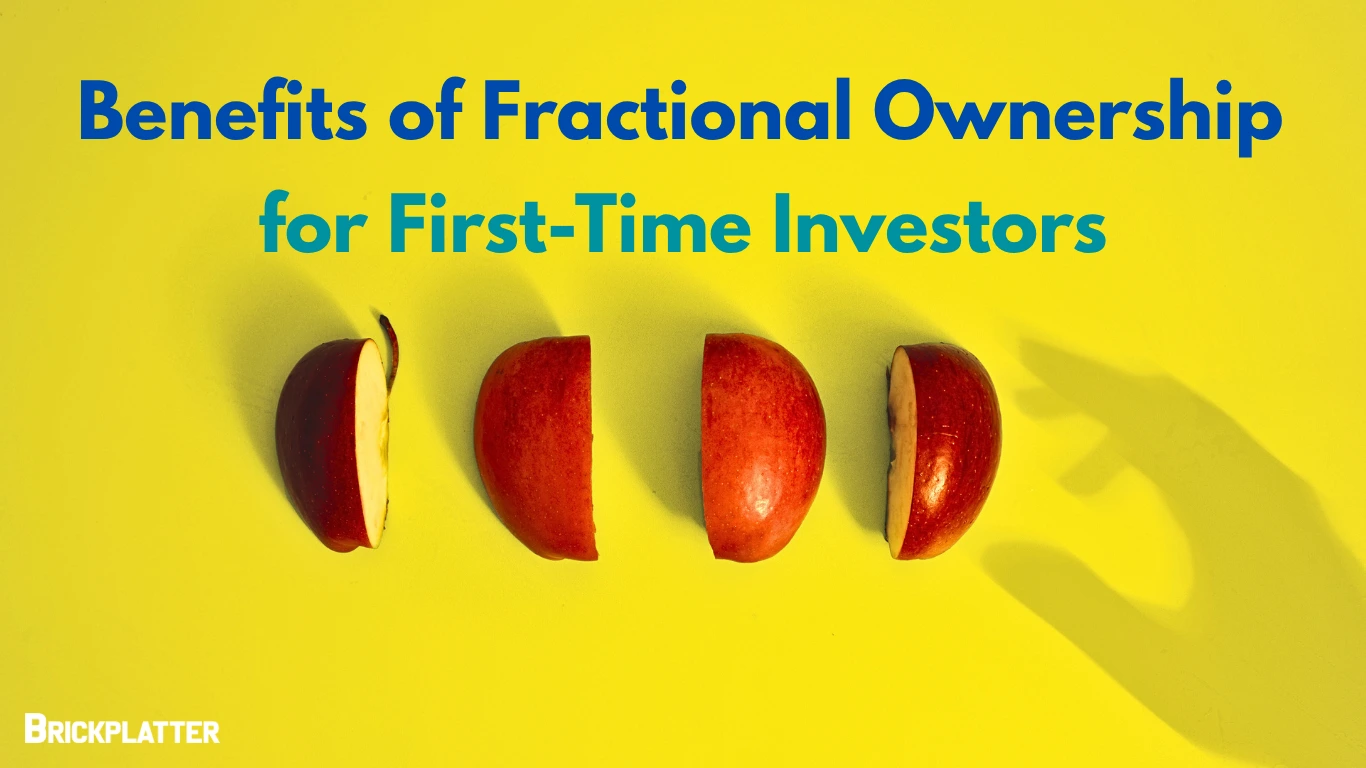
Table of Contents
ToggleTop 10 Mistakes to Avoid in Fractional Ownership Real Estate Investment
Fractional ownership in real estate has rapidly emerged as one of the most promising alternative investment models in India. By enabling multiple investors to co-own high-value residential, commercial, or vacation properties, fractional ownership makes premium real estate accessible to a wider audience. Platforms like BrickPlatter have pioneered this trend, offering SPV-based investment opportunities starting from as low as ₹10 lakhs. This model not only democratizes ownership but also provides passive income and potential capital appreciation with lower risk.
However, like any investment model, fractional ownership isn’t without its challenges. Many first-time investors enter the market with little understanding of the underlying legal, financial, and operational dynamics. Misjudgments or oversight can lead to missed opportunities, lower-than-expected returns, or even long-term disputes. It’s crucial to approach this exciting new real estate model with clarity, due diligence, and a sound strategy.
In this article, we outline the top 10 mistakes investors should avoid while participating in fractional ownership real estate, especially in the Indian context. Whether you are an NRI, HNI, or a salaried professional exploring diversification, these insights will help you invest smarter and safer.
1. Ignoring Legal Structure of the Investment
One of the foundational aspects of fractional ownership is the legal entity managing the property—typically a Special Purpose Vehicle (SPV). Many investors fail to scrutinize the SPV documentation, shareholder rights, and governance structure. Ensure that you fully understand how decisions will be made, how disputes will be resolved, and what rights you hold as a co-owner.
2. Overlooking Due Diligence on Property
Just because a property is listed on a fractional platform doesn’t guarantee it’s a sound investment. Some investors neglect to review key documents like property title, occupancy certificates, tenant agreements, and valuations. Platforms like BrickPlatter conduct this due diligence for you, but it’s always wise to review it yourself or through a legal advisor.
3. Not Evaluating the Quality of the Tenant
In most fractional models, especially in pre-leased commercial properties, your rental income is tied to the tenant’s reliability. Investors often overlook the importance of assessing the creditworthiness and lease terms of the tenant. A Grade-A tenant like a bank or MNC ensures better income predictability than a local business with a short lease.
4. Expecting Instant Liquidity
Fractional ownership offers better liquidity than traditional real estate, but it’s not as fast as stocks or mutual funds. Expecting to exit anytime at will is a mistake. Understand the exit mechanisms—whether it’s a resale platform, lock-in period, or end-of-term liquidation—and plan your investment horizon accordingly.
5. Ignoring Platform Credibility and Track Record
The platform facilitating the investment plays a crucial role in sourcing, vetting, managing, and exiting the property. Investing through an inexperienced or non-transparent platform can increase your risk. BrickPlatter, for example, focuses on curated, pre-leased, investment-grade properties and provides legal and financial transparency throughout the lifecycle.
6. Overestimating Returns
While fractional investments can yield attractive rental and appreciation returns, expecting double-digit monthly payouts is unrealistic. Understand the average rental yield in the area, the nature of the asset (commercial vs. residential), and market demand. Always compare expected returns against traditional options like REITs, fixed deposits, or equity mutual funds.
7. Failing to Diversify Across Property Types or Locations
Just like in equities, putting all your investment into a single property or location increases risk. Some investors pool all their funds into one commercial asset in Mumbai or Bangalore. Instead, consider spreading your capital across commercial, residential, and holiday homes in multiple cities using the same platform.
8. Not Understanding SPV Taxation and Compliance
SPV structures have specific tax implications for rental income and capital gains. If you are unaware of how taxation works for your shareholding, it may affect your net returns. Platforms like BrickPlatter guide investors with dedicated tax FAQs and CA consultations, but always cross-check with your own tax advisor.
9. Skipping Periodic Asset Performance Reviews
Many investors assume that once the investment is made, there’s no need for further involvement. While operational hassles are removed, investors should still review quarterly updates, tenant renewals, property valuations, and other performance metrics shared by the platform. Passive does not mean blind.
10. Missing the Exit Planning Strategy
Entering a property investment without an exit strategy is a common mistake. Some investors fail to ask whether resale is platform-assisted, market-linked, or based on pre-agreed timelines. Understanding your liquidity window and capital gains potential upfront will help manage expectations and financial planning.
Conclusion
Fractional ownership in real estate is revolutionizing how individuals and institutions invest in property. It opens up access to high-yield assets, reduces entry barriers, and removes many of the operational hurdles of traditional ownership. But like every investment vehicle, it comes with its own learning curve and risks.
Avoiding these top 10 mistakes is the first step to unlocking the true potential of fractional investments. As an informed investor, you need to pay close attention to the platform you choose, the asset’s legal and financial structure, and your overall portfolio diversification. By partnering with credible platforms like BrickPlatter, you gain access to thoroughly vetted, SPV-backed properties with transparency, governance, and support at every stage.
Whether you are a first-time investor, an NRI seeking smart returns, or an HNI looking for long-term wealth creation, understanding what not to do is just as important as knowing what to do. Stay informed, stay cautious, and fractional real estate can be a valuable addition to your investment journey in India’s booming property market.
Related Posts
- All Posts
- Blogs
- Commercial

